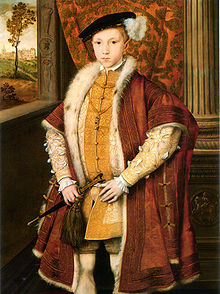One of the frequent frustrations of being a progressive person of faith is having to read and listen to the false and malicious narratives of the religious right claiming that they and they alone represent the official religious viewpoint.
A less frequent frustration - though perhaps even a greater one - is having to read and listen to secular progressives who are so ignorant of the history of progressive political movements that they unconsciously parrot the false memes of the religious right.
Last month, Saskatchewan New Democratic Party leadership candidate
Ryan Meili laid out
a plan for reaching out to faith communities, and in particular to progressive people of faith. His plan explicitly offers a counternarrative to the false claims of the religious right, pointing to global examples like Martin Luther KIng and Mahatma Ghandi and to more local examples like former CCF-NDP leaders and Saskatchewan premiers Tommy Douglas and Lorne Calvert.
The key point in Meili's plan is the establishment of a Faith and Social Justice Commission, modeled on a similar initiative in the federal NDP. This commission would "open a space for dialogue within the party on the intersection of faith and politics," leading to the implementation of an outreach strategy to religious voters.
Meili's proposal is endorsed by former Premier Calvert:
"faith has inspired many of us to seek justice through political action. To provide an opportunity of dialogue for those who arrive from the intersection of faith and politics will serve the party and the province well."
It is also endorsed by Dr. Mateen Raazi, a leader in Saskatoon's interfaith group Multifaith Saskatoon:
“While duly recognizing and respecting the diversity of religious opinion, this policy emphasizes the commonality of communal and social justice themes across various religious traditions. Adoption of such a policy further provides political common ground to the many whose social justice work is inspired by their religious traditions."
Unfortunately,
political blogger Scott Stelmaschuk seems to miss the point, offering up a bit of secular fearmongering and the veiled hint that any outreach to religious progressives would mean compromising the party's principles.
"I fear I've editorialized this post more than I meant to, but I do think there
are valid concerns to have over such a commission as this. There is nothing
wrong with having a discussion, and attempting to do better to connect our
values with those of faith-based groups throughout Saskatchewan; but at the same
time, we must take heed to ensure that we are not crafting party policy that
compromises on our own social values."
Like many secular progressives these days, Scott is woefully ignorant about the strong tradition of progressive religious political activism in western Canada and in Saskatchewan in particular, and he apears to be oblivious to the significant role religious progressives played in creating the CCF-NDP. He assumes that people of faith who support the New Democratic Party do so despite their religious beliefs rather than because of them. And he assumes that virtually all religious voters are anti-choice, even if some set that aside to vote for pro-choice politicians.
Scott seems to be completely unaware of the Social Gospel movement of the late 19th and early 20th centuries, many of whose members were deeply involved in the formation of progressive political movements, especially the Co-operative Commonwealth Federation (the forerunner to today's New Democratic Party. He appears to have forgotten that for nearly one-third of the party's history in Saskatchewan, it was led by ordained Christian clergymen (Tommy Douglas 1942 - 1961 and Lorne Calvert 2001 - 2009). (If we include the first Saskatchewan CCF leader, Anglican Lay Reader M.J. Coldwell who successively led the Independent Labour Party 1926 - 1929, the Farmer Labour Party 1929 - 1932 and the Saskatchewan CCF 1932 - 1934, we're well over the one-third mark.)
Somehow, according to Stelmaschuk, getting too cozy with religious people risks undermining the party's principles. We are led to the ridiculous conclusion that those religious activists (mostly Christian activists, given the demographics of the day - though Jewish progressives played a significant role in other parts of Canada) had nothing to do with shaping the existing principles of the party.
Stelmaschuk also seems completely hoodwinked by the religious right's claim that there is only one authentic religious view on the abortion issue. He appears to be unaware that the anti-choice consensus on the evangelical right is a recent development - indeed,
it isn't as old as the McDonald's Happy Meal. He seems similarly unaware that religious views on the abortion issue run the gamut from ardently anti-choice to as ardently pro-choice.
I grant you, many of the loudest religious voices these days tend to be pretty reactionary. That's pretty discouraging for those of us who see ourselves as part of the long tradition of progressive people of faith.
The problem with the kind of superficial, knee-jerk reaction of people like Stelmachuk is that it plays right into the strategies of the religious right. It alienates potential political allies, leaving us, at best, disenfranchised. It isn't like the Saskatchewan NDP is so flush with electoral support we can discard religious progressives as an inconvenient constituency.
Indeed, Stelmachuk's shoddy analysis may be the best evidence of the need for a deliberate outreach to religious communities, and for the establishment of a Faith and Social Justice Commission within the Saskatchewan NDP.




